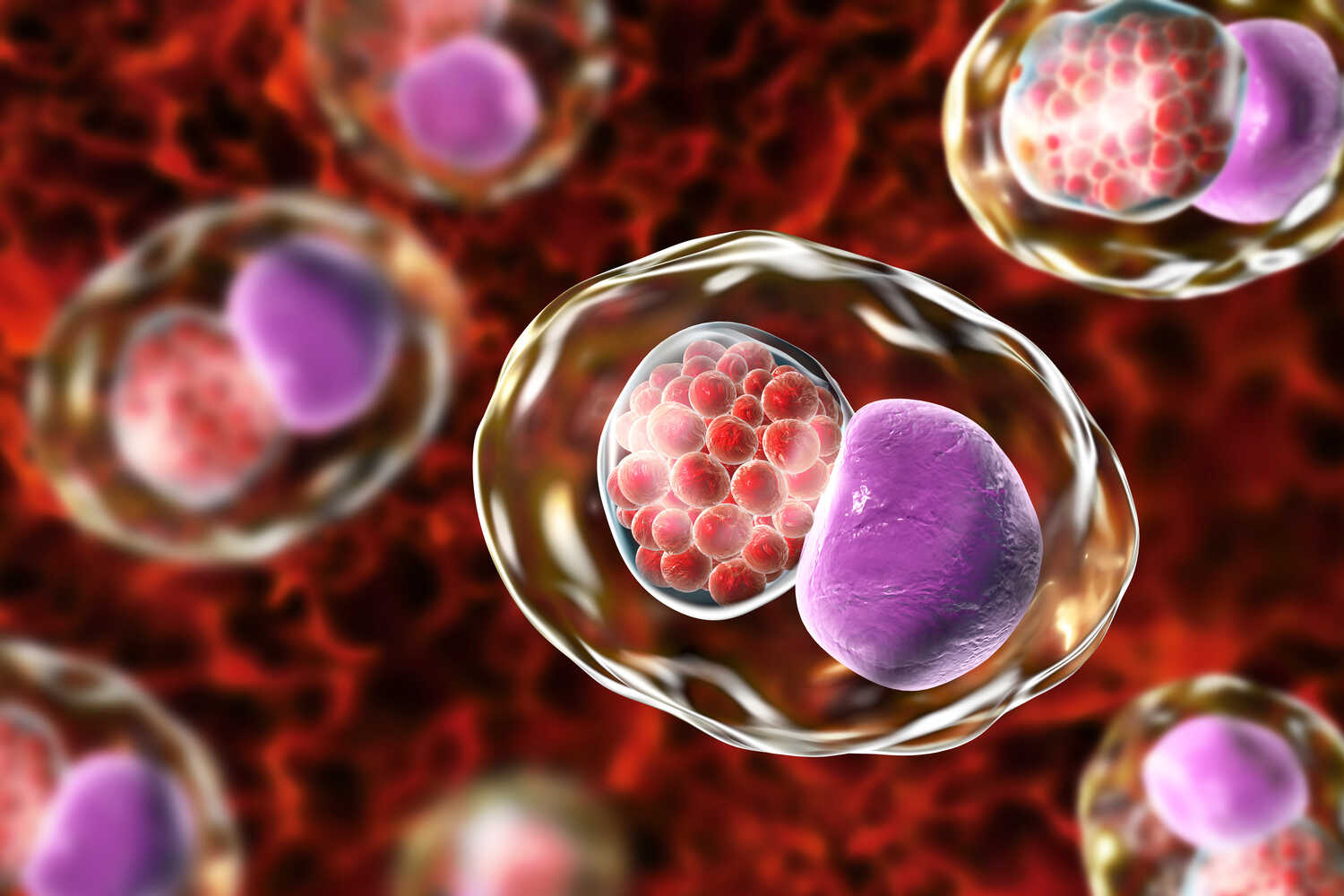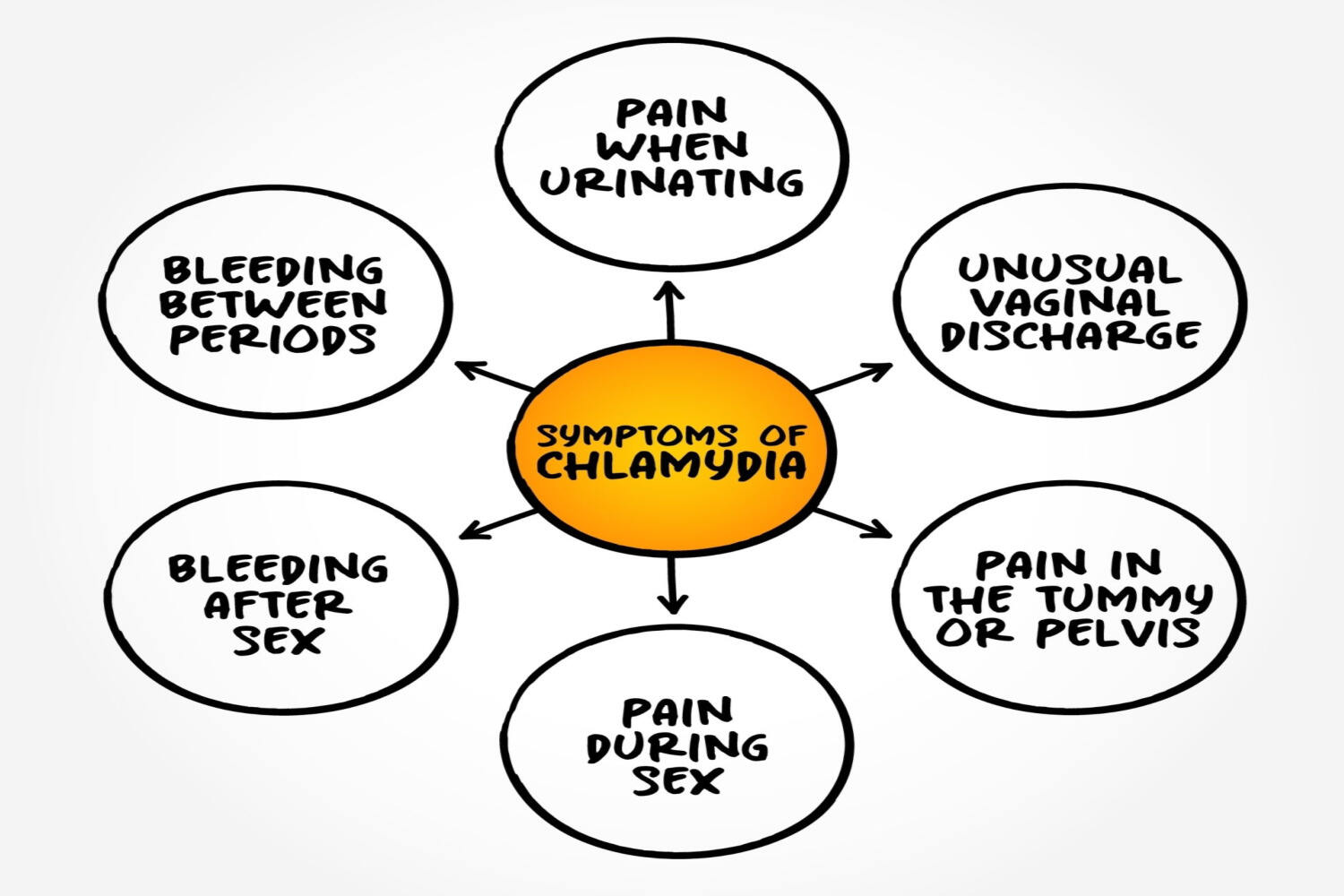
Bacteria and viruses are all around us and affect us in many ways. Many bacteria can cause genital infections affecting the reproductive system. Sexually transmitted infections usually develop from the spread of these bacteria through sexual contact. Chlamydia is one such infection. So how does this infection affect health? Can chlamydia cause infertility in men and women?
Common bacteria affecting genital health are Chlamydia trachomatis and Neisseria gonorrhoeae. They can cause serious issues with our reproductive health. Chlamydia can cause infertility in men and women, which is a dreaded complication.
In This Article
- What is Chlamydia?
- Can Chlamydia Cause Infertility in Men and Women?
- Causes of Chlamydia
- Symptoms of Chlamydia
- Long-Term Effects of Chlamydia in Men and Women
- How Long Does it Take For Chlamydia to Cause Infertility in Males And Females?
- How is Chlamydia Diagnosed?
- Treatment Options For Chalamydia
- FAQ’s
What is Chlamydia?
Chlamydia is one of the most common sexually transmitted infections, caused by bacterium named Chlamydia trachomatis. It can occur in both men and women. Most of the time, it’s asymptomatic, but in a few cases, it can lead to serious complications. According to studies, infection is asymptomatic in 61% of women and 68% of men, resulting in onward transmission (1). Chlamydia can cause infertility in both men and women if it remains untreated as it can damage the major reproductive organs ( 1A).
Can Chlamydia Cause Infertility in Men And Women?

Sexually transmitted infections like gonorrhea and chlamydia are the most common causes of pelvic inflammatory disease (PID) in women. Untreated PID can, in turn, lead to infertility, as it can damage the reproductive organs. It can lead to permanent damage to the fallopian tubes, uterus, and the surrounding tissues. This damage makes it a hostile environment for conception to happen. Infertility due to tubal blockage is one of the severe consequences of chlamydia infection (2).
In men, chlamydia can infect the epididymis and the urethra. The epididymis is the tube that carries the sperm and stores them for maturation. Untreated infections can also result in a decline in the quality and motility of the sperm. It is known to directly damage the DNA structure of the sperm therefore causing infertility in men (3).
Causes of Chlamydia
The disease occurs due to the transmission of Chlamydia trachomatis bacteria. It most often spreads through unprotected sexual intercourse through infected semen or vaginal fluid. If a woman has an active infection during pregnancy, then she can pass it on to the unborn child at the time of vaginal delivery (4).
Symptoms of Chlamydia

Most of the time, people don’t show any symptoms at all. In a few cases, they appear around 3-4 weeks after having sexual contact with an infected person. Symptoms vary from person to person. Common symptoms in women are:
- Abnormal vaginal discharge with an unpleasant odor.
- Pain while urinating
- Painful periods with or without heavy bleeding.
- Bleeding in between menstrual cycles.
- Burning sensation or itching around the vaginal area.
- Pain during sexual intercourse.
- Bleeding after sexual intercourse.
- Abdominal or pelvic pain.
- Fever
If left untreated, it can lead to pelvic inflammatory disease, which can further cause infertility and ectopic pregnancy.
Symptoms in men are different from those in women. Some of the common symptoms in men include:
- Pain while urinating.
- Abnormal discharge from the tip of the penis, which can be watery or cloudy.
- Burning sensation around the area surrounding the penis.
- Pain and swelling in the testicles.
Untreated infections in men can affect the epididymis and the testicles, resulting in infertility.
Chlamydia can also affect the anus, throat, and eyes.
Anus and rectum can be involved due to unprotected anal intercourse. This causes pain, discomfort, and abnormal discharge from the anal orifice.
Oral sex can lead to the involvement of the throat. Though it is quite uncommon and shows no symptoms.
Involvement of the eyes due to contact with the infected fluid from the vagina or the semen. It presents with pain, redness and abnormal discharge.
Long-Term Effects of Chlamydia in Men and Women

Long-term effects of Chlamydia are very likely, as most of the cases remain asymptomatic and don’t get diagnosed on time. Unfortunately, it can hamper the health of both genders. The effects are more common in women.
Some of the most common chlamydia symptoms include
1. Pelvic Inflammatory Disease
PID is an infection involving the upper genital tract affecting the uterus, one or both tubes and ovaries. Chlamydia is one of the most common causes of PID. Untreated infection can cause permanent damage to the major reproductive organs, causing difficulty conceiving.
2. Ectopic Pregnancy
Due to the involvement of fallopian tubes, ectopic pregnancy is common with this infection (5). Here, implantation of the embryo takes place outside the uterus. Fallopian tubes are the most common site of ectopic pregnancies. This is an emergency medical condition and requires immediate attention.
3. Infertility in Women
Due to damage and scarring of the fallopian tubes and the ovaries, infertility is quite common. Scarring can lead to blockage in the tubes, which makes it impossible to conceive naturally.
4. Epididymitis in Men
Untreated infections in men can cause epididymitis, which is the inflammation of the epididymis. This is a coiled tube that carries and stores the sperm. Infection can involve the testis as well, causing epididymal orchitis.
5. Infertility in Men
One of the devastating complications is infertility in men. This is mainly due to the direct effect on the maturity of sperm. Poor quality and decreased motility of the sperm leads to infertility.
How Long Does it Take For Chlamydia to Cause Infertility in Males And Females?
There is no clear timeline as to when infertility develops after the onset of infection. It differs from patient to patient and can vary from weeks to years. The longer the delay in treatment, the more the damage to reproductive health.
How is Chlamydia Diagnosed?
As most often, Chlamydia is asymptomatic, it’s important to conduct regular screening for the infection. Sexually active people and people with multiple sexual partners should be screened regularly.
The most common test for diagnosing Chlamydia is the Nucleic Acid Amplification Test(NAAT). NAAT is the most sensitive test to detect this infection and has a specificity similar to that of cell culture (6). This requires fluid samples through a vaginal/cervical swab or a urine sample. In men, a swab from the urethra is taken for testing.
Treatment Options For Chlamydia
Chlamydia is a curable disease. Here are some of the chlamydia treatment options.
- Being a bacterial infection, it is treatable with the use of broad-spectrum antibiotics. The course of antibiotics is usually 10-14 days.
- Regular follow-ups doctor visits and tests are a must to prevent any recurrence of infection.
- Abstinence from any sexual activity is also a part of the treatment till the time the infection clears up.
- Sexual partners must also be treated to avoid further spread of the infection.
So, the best way to fight chlamydia is by preventing its spread. Regular screening must take place to ensure good sexual health. If you think that you are at risk of getting the infection, then contact your healthcare provider and get a screening test as soon as possible. One of the main concerns is Chlamydia causing infertility in males and females. Prevention requires healthy sexual practices, by avoiding unprotected sex and getting regular tests.
FAQ’s
1. Can Chlamydia Go Away on Its Own?
Chlamydia doesn’t go away on its own. It’s very important to treat it by taking appropriate antibiotics prescribed by your healthcare provider.
2. Can Chlamydia be Transmitted by Kissing?
You are unlikely to contract Chlamydia by kissing. It doesn’t spread through the saliva. Chlamydia spreads through anal, vaginal or oral sex with someone who is already infected with the disease.
3. How do I Know my Chlamydia is Gone?
Repeat testing after the course of antibiotics can help in knowing about the status of the infection. This is most effective after six weeks of the antibiotic course.
4. How Serious is Chlamydia?
Untreated and long-standing infections have the potential to cause permanent damage to the reproductive organs, leading to infertility. Ectopic pregnancy is another fatal condition that can be caused by Chlamydia.
References
- Prevalence of genital Chlamydia trachomatis infection in the general population: a meta-analysis | BMC Infectious Diseases – [https://bmcinfectdis.biomedcentral.com/articles/10.1186/s12879-020-05307-w]
- How much infertility does chlamydia cause? | Sexually Transmitted Infections – [https://sti.bmj.com/content/84/3/157.1.short]
- Male genital tract chlamydial infection: implications for pathology and infertility – PubMed – [https://pubmed.ncbi.nlm.nih.gov/18480466/]
- A review on infection with Chlamydia trachomatis – ScienceDirect – [https://www.sciencedirect.com/science/article/abs/pii/S1521693406000666]
- Relation of Chlamydia trachomatis infections to ectopic pregnancy – PMC – [https://www.ncbi.nlm.nih.gov/pmc/articles/PMC6946389/]
- Microorganisms | Free Full-Text | Diagnostic Procedures to Detect Chlamydia trachomatis Infections – [https://www.mdpi.com/2076-2607/4/3/25]
